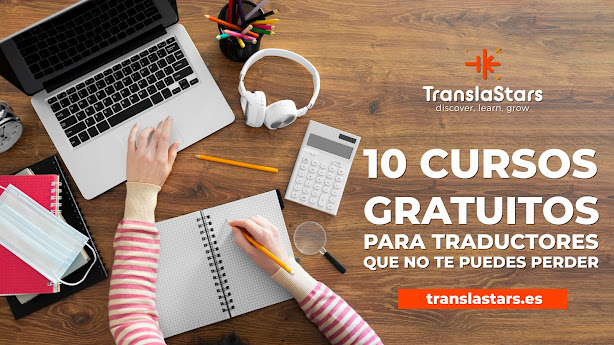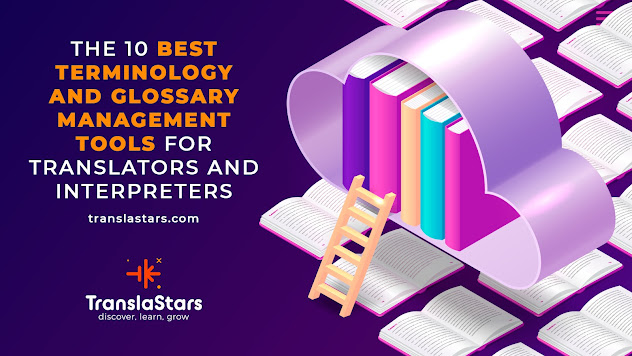Best alternative career paths for translators
Let’s say you’ve just earned your degree in Translation and you’re wondering: “All right, but what are my career options – besides translating, of course?”.
Or let’s say you’re an experienced freelance
translator who wants to add some pizzazz to his or her tried and tested
routine.
The best thing you can do in both situations is to ask your fellow translators to share their experiences with you.
While you’re waiting for them to answer, we’ve asked
some great professionals with a translation background to show you how you can put
your hard-earned array of language skills to work in a different field.
Table of contents
1.
Kelsey
Frick, Freelance Account Manager
2.
Bilyana
Ancheva, Copywriter
3.
Virginia
Vizcaíno Ruiz, Marketing Consultant
4.
Lucy
Walhain, Terminologist
1.
Kelsey
Frick, Freelance Account Manager
“I spent 5 years working for a boutique translation
agency as their Senior Account Manager, but a year ago I decided that I needed
something a bit different and left that role”, says Kelsey Frick, who self-defines as a “lady who posts TikToks disguised as LinkedIn content”.
All jokes aside, at that time “I didn’t know what I
wanted, but I knew I wanted my ‘dream job’ and I wasn’t going to settle. So I
went freelance just to pay the bills. I was trained in translation and
subtitling, so I figured that’d be the type of work I’d pick up, but since
people in the industry already knew me as an account manager, that ended up
being the type of work I kept getting offered”.
Pretty quickly she realised this was her dream
job and decided to go freelance properly and start her business. But what does
a Freelance Account Manager typical workday
look like?
“My typical workday starts around 8-8.30am. I log on,
look at my to-do list of tasks that I made the day before, and update it with
anything else that’s come in overnight. I have about 5 emails that I manage,
between my own and the ones I manage for my clients’, so this takes a good
while!”, she explains.
“With all my tasks for the day laid out in front of me
during the morning, I prioritise what each end client needs and run projects
accordingly. A lot of this is about knowing the end clients –one client’s ‘urgent’
Is much different than another’s!”. After an hour-long lunch break, her
afternoon is filled with meetings. “At the end of the day, I’ll see what needs to
be accomplished for the next day and write down my to-do list”.
“I’m definitely
grateful for the fact that I’ve had my BA in Translation and Media to prop up
my career. I don’t think I would’ve gotten into this field without it. It’s
helped me grow into an understanding project and account manager. It means that
I can understand difficulties in translation that linguists may face, while
still being able to convey why to an end client who isn’t in the localisation
sphere”, she says. “The other thing I do is try to attend every free webinar I
can that major industry players put on. There’s so much out there that I don’t
know about the industry, and while I’m an expert in my little field, there’s
still a lot to learn”, she adds.
PRO TIP: Head to our Free Courses & Resources section to enjoy some of our best courses for free.
2.
Bilyana
Ancheva, Copywriter
“While translating has been my full-time profession in
Bulgaria, it wasn't this way when I moved to Spain many years ago. Translating
Bulgarian in Spain was not a profitable business due to a lack of demand, so I
had to build my career in other fields not directly linked to translation”, says
Bilyana Ancheva, who now is a trilingual copywriter and content
manager.
“I became acquainted with copywriting gradually: it
was a process of discovering what services were needed and what I could add to
translation to complement my translation skills”, she adds.
From her point of view, “both translation and
copywriting require similar basic skills: excellent writing and creativity”.
Besides, “copywriting can add value to a translator's work because it allows him
or her to directly write in their linguistic combinations about topics that are
relevant and interesting to their potential clients, rather than just
translating content. I really suggest you consider this skill, especially if
you are struggling to assure full-time income as a translator with rare
language combinations and less translation demand”.
PRO TIP: Wondering whether copywriting is the best for
you as a translator? Bilyana’s course “Copywriting for Translators” answers all your questions and allows you to learn
the basics of direct-response copywriting and content
writing directly applicable not only to your own translation
business, but also to the copywriting needs of your translation target clients.
3.
Virginia
Vizcaíno Ruiz, Marketing Consultant
“As a student, I tried every specialization and I
realized that the fields I enjoyed the most had to do with marketing,
communication and advertising, because it requires lots of thinking, creativity
and playing with words. I’ve always enjoyed writing and in my last year of
studies I took a course on transcreation and copywriting and did an internship
on digital marketing, and that’s when I knew for sure”, says Virginia Vizcaíno Ruiz, professional translator and marketing consultant,
After working in-house in a communications department and
studying an MA in Multilingual digital marketing, she became a freelancer, “completely
sure about wanting to follow that path from then on!”.
Now she feels “a bit like Hannah Montana: In the
morning I put on my marketing consultant hat, and in the afternoon, I become my
translator self. As a marketing consultant, my work consists of reaching out to
clients and assisting them with their marketing needs: some of these tasks
include designing website structures, paid media campaigns, social media
campaigns, client engagement campaigns, etc. As a translator, I work with
direct clients in different fields, and my translations are always used for
marketing and communication purposes”, she explains.
When you work in marketing, “being used to play with
words and doing your research to deeply understand the original concept makes a
huge difference. As translators, we are trained to dive deep into meaning, and
that’s the very root of creating a successful marketing strategy: understanding
the essence of the product or service, and the message that needs to be shared”.
PRO TIP: Learn the basics of traditional and digital
marketing while also sharpening your translation skills with Virginia’s course
“Traducción
para marketing”!
4.
Lucy
Walhain, Terminologist
“Terminology and translation are really linked. During
my translation studies, I learned how to search for information, find reliable
sources and deeply understand texts. This is helpful in terminology when the
terminologist is trying to understand a concept and create its definition based
on different sources. And of course, as I work in a multilingual environment,
my language skills are very also useful”, says Lucy Walhain, Terminologist at the European Union’s Publications
Office.
“Our work here is to maintain controlled vocabularies
(authority lists, taxonomies, thesauri, ontologies, etc.). I check that all
reference data and metadata are compliant with the ISO standards for
terminology. This ranges from creating concepts and their terms to creating
definitions for already existing ones”, she explains. If you wish to follow her
steps, she suggests applying for an internship at the Terminology coordination unit at the European Union. “Their website also contains a
lot of useful information to find out more about terminology work and
terminological resources”, she adds.
PRO TIP: Do you have a background in translation but
over time you’ve chosen a different career path?
If you wish to share your experience with us and other
fellow translators, please contact us and we’ll feature you in our next
article, “Best Alternative Career Paths for Translators – Part Two”!
We want to hear your story!





Great post and if you want to dive deep into the alternatives for translators, head over to Bilyana Ancheva blog https://bilyanaancheva.com/blog/
ReplyDelete